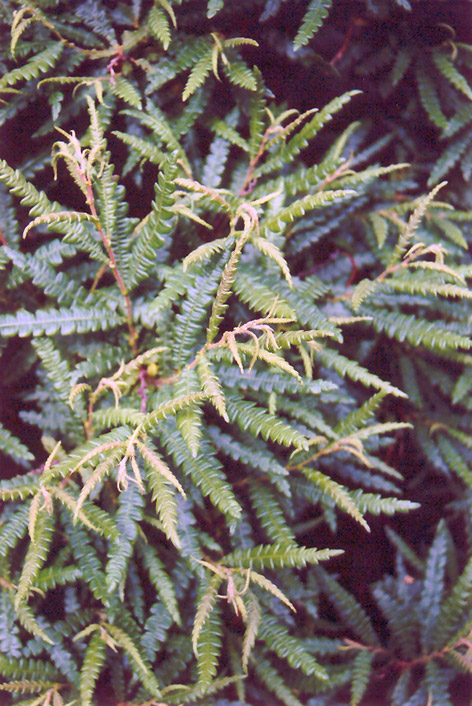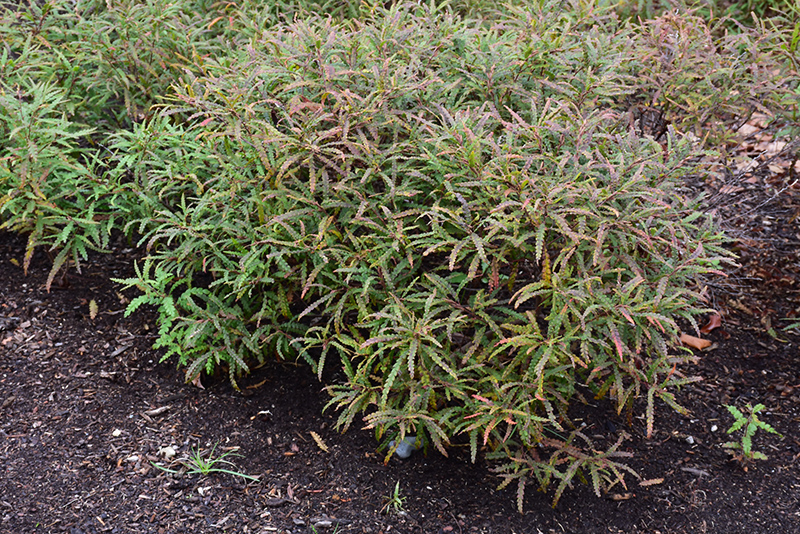3 feet
5 feet


2b
Sweetfern has dark green deciduous foliage on a plant with a spreading habit of growth. The fragrant ferny leaves turn brown in fall.
Sweetfern is a multi-stemmed deciduous shrub with a ground-hugging habit of growth. It lends an extremely fine and delicate texture to the landscape composition which should be used to full effect.
This shrub will require occasional maintenance and upkeep, and is best pruned in late winter once the threat of extreme cold has passed. Gardeners should be aware of the following characteristic(s) that may warrant special consideration;
Sweetfern is recommended for the following landscape applications;
- General Garden Use
- Groundcover
- Naturalizing And Woodland Gardens
Sweetfern will grow to be about 3 feet tall at maturity, with a spread of 5 feet. It has a low canopy with a typical clearance of 1 foot from the ground. It grows at a slow rate, and under ideal conditions can be expected to live for approximately 20 years.
This shrub does best in full sun to partial shade. It prefers dry to average moisture levels with very well-drained soil, and will often die in standing water. It is very fussy about its soil conditions and must have sandy, acidic soils to ensure success, and is subject to chlorosis (yellowing) of the foliage in alkaline soils, and is able to handle environmental salt. It is somewhat tolerant of urban pollution. This species is native to parts of North America.

